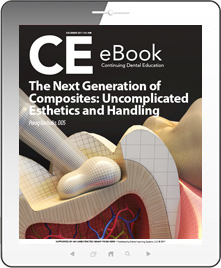The Next Generation of Composites: Uncomplicated Esthetics and Handling
Released: Thursday, March 15, 2018
Expires: Wednesday, March 31, 2021
By Parag Kachalia, DDS
Commercial Supporter: Kerr Corporation
Historically, the more esthetic a restoration was, the less strength it demonstrated. While the goal is to deliver a higher level of care, clinicians also want to be realistic, understanding that composites should be placed in an efficient manner for a practice to maintain probability. Creating natural-looking restorations can be incredibly time consuming and technique sensitive. However, this is no longer the case. This article explains how strength and esthetics can both be achieved without compromise with new and improved materials, techniques, and processes.
LEARNING OBJECTIVES:
-
Describe layering techniques for functional and esthetic success.
-
Explain the selection of materials for various clinical situations.
-
Evaluate the strengths of the five main composite types.
About the Author
Parag R. Kachalia, DDS, is the vice chair of Preclinical Education, Technology & Research in the Department of Integrated Reconstructive Dental Sciences at the University of the Pacific Arthur A. Dugoni School of Dentistry. He also has a private practice in San Ramon, California.
